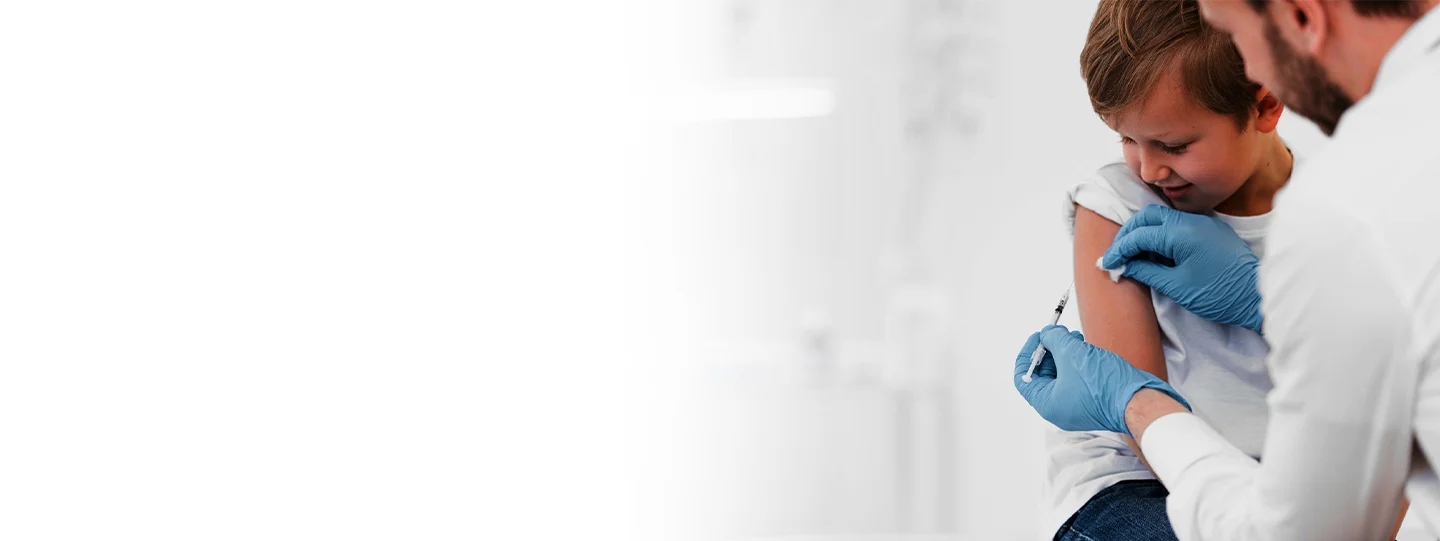आपल्या मुलाचे अद्ययावत लसीकरण करून घ्या
आपल्या मुलास रोगांपासून संरक्षण करण्यासाठी आपण करू शकणाऱ्या सर्वात महत्वाच्या गोष्टींपैकी एक आहे त्याला सर्व लसीकरण वेळेवर दिले जाईल याची खात्री करून घेणे. विशिष्ट जिवाणूंचा किंवा विषाणूंचा सामना करू शकणारी प्रतिपिंडे (अँटीबॉडीज) तयार करता यावीत म्हणून लसी देऊन शरीराच्या रोगप्रतिकारक शक्तीला उत्तेजित करता येते. जेव्हा एखाद्या समुदायातील पुरेशा संख्येत लोकांना लस मिळते, तेव्हा संसर्गजन्य आजाराला पसरण्यापासून रोखता येते.
नियमित हात धुण्यास प्रोत्साहन द्या
आपल्या मुलास विशेषत: स्वच्छतागृह वापरल्यानंतर, खाण्याआधी आणि सार्वजनिक ठिकाणी राहिल्यानंतर वारंवार हात धुण्याचे महत्त्व शिकवा. आपले हात धुणे म्हणजे आजार पसरविण्यास रोखण्याचा सर्वात सोपा आणि प्रभावी मार्ग आहे.
आपण शिंकताना किंवा खोकताना आपले तोंड आणि नाक झाकून ठेवा
आपल्या मुलाला खोकताना किंवा शिंकताना त्याचे तोंड व नाक झाकण्याचे महत्त्व शिकवा. यामुळे रोगाणूला पसरण्यापासून आळा घालण्यास मदत होऊ शकते.
आजारी लोकांच्या सान्निध्यात राहणे टाळा
आपल्या मुलांना शक्य असल्यास आजारी असलेल्या कुटुंबातील सदस्यापासून किंवा शेजाऱ्यांपासून दूर राहण्यास शिकवा. असे केल्याने रोगराई पसरण्यापासून रोखता येते. आपल्या मुलाला वारंवार हात धुण्यासाठी आणि जर ते आजारी असलेल्या एखाद्याच्या संपर्कात आले तर त्यांच्या चेहऱ्याला स्पर्श करणे टाळण्यासाठी प्रोत्साहन द्या.
आपल्या मुलाच्या आजूबाजूची जागा स्वच्छ करा
घर स्वच्छ ठेवल्यास आजारांचा प्रसार रोखण्यास मदत होते. दारांच्या कड्या (डोअर नॉब्स), लाइटची बटणे (स्विच) आणि काउंटर टॉप्स सारख्या नियमितपणे स्पर्श केल्या जाणाऱ्या वस्तू स्वच्छ करण्यासाठी जंतुनाशक वाइप्स किंवा स्प्रे वापरा.
आपल्या मुलामध्ये निरोगी दिनचर्या निर्माण करा
आपल्या मुलास सक्रिय जीवनशैली जगण्यासाठी, आरोग्यदायी आहाराचे सेवन करण्यास आणि पुरेशी विश्रांती घेण्यास प्रोत्साहन द्या. आरोग्यदायी जीवनशैली जगून त्यांची रोगप्रतिकारक शक्ती भक्कम करता येईल आणि संसर्गाचा धोका कमी करता येईल.
बाळाला स्तनपान द्या
आपल्या बाळाला आजारांपासून वाचविण्यास आईच्या दुधात आढळणाऱ्या प्रतिपिंडांची (अँटीबॉडीजची) मदत होते. बाळाला जन्मल्यापासून पहिले सहा महिने केवळ स्तनपान देण्याचा प्रयत्न करा.
आपल्या मुलाला सिगारेटच्या धुरापासून दूर ठेवा
सिगारेटच्या धुरामुळे आपल्या मुलाची रोगप्रतिकारक शक्ती अशक्त होऊ शकते, आणि म्हणून त्याला संसर्ग होण्याचा धोका वाढतो. जर आपण किंवा आपल्या घरातील इतर कोणी धूम्रपान करत असतील, तर ते थांविण्याचा प्रयत्न करा किंवा आपले मूल आजूबाजूला नसेल अशा ठिकाणी करा.
आपल्या मुलाच्या नियमित वैद्यकीय तपासण्यांवर लक्ष ठेवा
नियमित वैद्यकीय तपासण्या करून घेतल्यावर आजारांचे लवकर निदान करण्यास आणि त्याच्यावर उपचार होण्यास मदत होते. आपल्या मुलाची न्यूमोनिया, टीबी आणि इतर आजारांसारख्या संसर्गांसाठी नियमित तपासणी आणि चाचणी केली जात आहे, हे सुनिश्चित करून घ्या.
वैयक्तिक गोष्टींची देवाणघेवाण करू नका
आपल्या मुलांना चमचे, कंगवे आणि टूथब्रश सारख्या वैयक्तिक वस्तू देऊ नये म्हणून शिकवा. अनेक मुले जिथे जवळ जवळ असतात अशा ठिकाणी म्हणजे, शाळा किंवा डे-केअर सेंटर अशा ठिकाणी, वैयक्तिक वस्तू वाटून घेतल्याने संसर्ग पसरण्याचा धोका वाढू शकतो. आपले मूल फक्त स्वत:च्या वैयक्तिक वस्तू वापरत आहे आणि त्यांना निर्जंतुक आणि नीट नेटके ठेवत आहे, हे सुनिश्चित करून घ्या.
निष्कर्ष: मुलाला संसर्गांपासून संरक्षण देण्याची एक सतत प्रक्रिया आहे, ज्याला लगेच लक्ष ठेवणं आणि महत्त्व देणं आवश्यक आहे. हे सोपे उपाय अनुसरून आणि तुमच्या मुलाच्या आरोग्याच्या प्राथमिकतेचे ध्यान देऊन, तुम्ही त्यांच्या संक्रामक रोगांच्या धोक्यांची किंमत कमी करू शकता. जर तुमच्या मुलाच्या आरोग्य किंवा कल्याणाबद्दल कोणतीही चिंता असेल तर, सुर्या हॉस्पिटलच्या बालरोग तज्ञांकडे सल्ला मिळवा.


